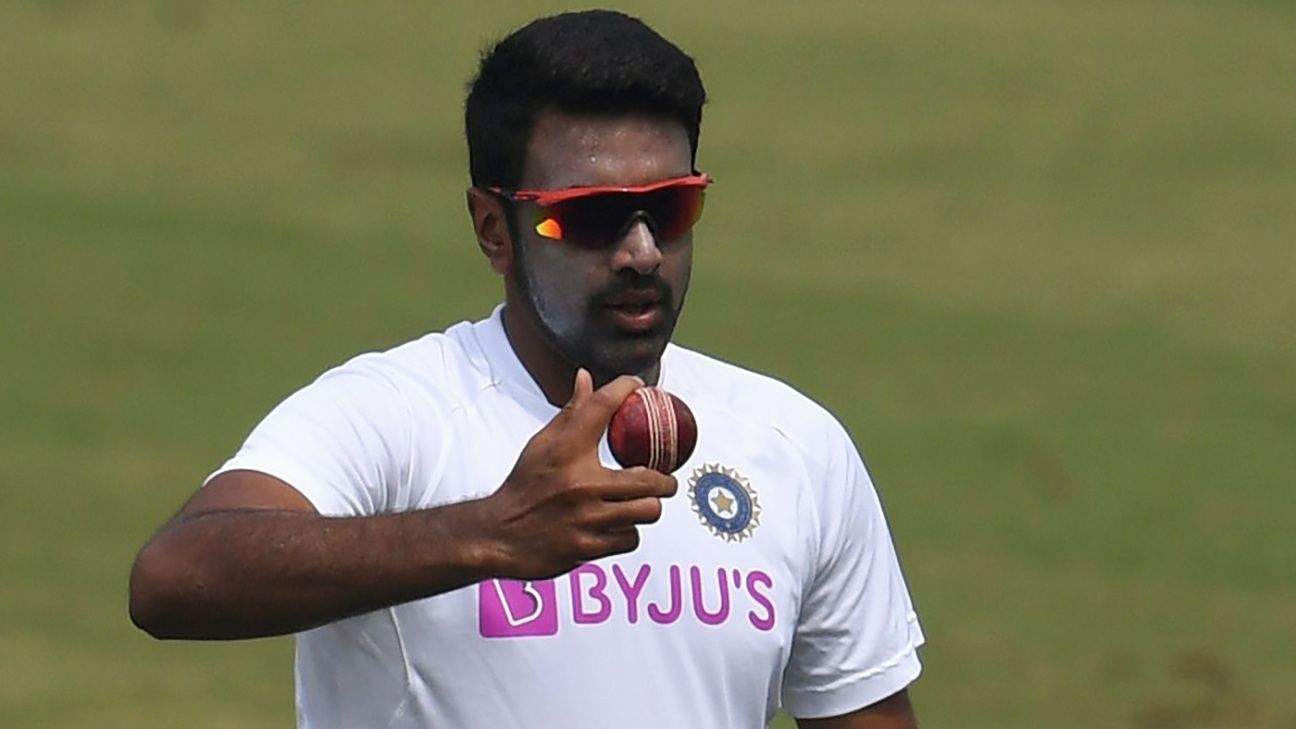R Ashwin has lashed out at the Tamil Nadu cricket administration, the team management and senior players for driving the state’s first-class cricket to a perilous situation where players are “succumbing to the basics of cricket.”
“I don’t know where to start and where to end, to be honest, because I don’t think there is any lack of effort,” Ashwin, the India and Tamil Nadu offspinning allrounder, told reporters from Sportstar, The Times of India, and The New Indian Express, after their 71-run loss to Himachal Pradesh in the Ranji Trophy in Dindigul on Thursday.
It was Tamil Nadu’s second straight loss in the tournament, and the dearth of solidity in their batting stood exposed in their defeat to Himachal in particular, as they lost 7 for 42 chasing 217.
“I feel there is probably too much inexperience,” Ashwin said. “Losing three players (Dinesh Karthik, M Vijay and Washington Sundar to wrist, ankle and finger injuries respectively), who were batsmen with experience, from the last game didn’t help. We were outplayed in both the games, especially on the batting front. I’ve spoken to the selectors. In the next couple of years, we need to pick 15-20 and play them come what may. That’s the only way forward.”
Tamil Nadu went into the first-class season this year with runners-up finishes in the Vijay Hazare Trophy, the domestic one-day competition, and the Syed Mushtaq Ali Trophy, the 20-over tournament, suffering narrow defeats to Karnataka in both finals. For the first two matches of the competition, Tamil Nadu named allrounder Vijay Shankar as their captain, replacing Dinesh Karthik, who voluntarily gave up the post. Ashwin, too, was in the captaincy fray. However, it is understood that his likely non-availability for the state side due to his Test commitments for India’s tour of New Zealand in January 2020, made Shankar the first-choice candidate.
A major part of the thrust of Ashwin’s argument was on what he believes is a veneer of vigor among Tamil Nadu’s sides across formats. He made it clear that giving longer runs to inexperienced players in the side is paramount if Tamil Nadu were to boost their health in the first-class cricket.
“It’s a rebuilding phase; I don’t think we are ready,” Ashwin said. “It cannot start and stop with individuals. It runs deeper. The exposure to play swing bowling is lacking. We need to go to events like the KSCA tournament. That was a major part of my growth as a cricketer. I also feel it is time to revive MJ Gopalan Trophy.
“It’s not like you send back two players tomorrow and get somebody else. That’s not going to change things. We need to understand this is not going to change overnight. Red-ball cricket is a different kettle of fish. In white ball, all the seniors were there after the group league. That made things look hunky-dory. But we need to be honest with ourselves.”
In his trademark outspoken manner, Ashwin also held senior players accountable for the deterioration of the quality of Tamil Nadu’s red-ball mettle. At the centre of his scathing assessment was S Badrinath, the former India and Tamil Nadu batsman, who moved to Vidarbha in 2014-15, after 15 seasons with Tamil Nadu.
“We cannot allow the senior players to be the way they want,” Ashwin said. “We need to make them inclusive to get the maximum out of them. The last time when somebody like Badri left, it was not the right time for him to leave. He went to Vidarbha and capitalised on two good seasons. The team grew. Somebody with such a wealth of experience should be here, guiding our youngsters.”
Ashwin was equally critical in his appraisal of the feeder set-up in place for Tamil Nadu’s first-class cricket and the organisation of the tournaments at the lower levels.
“For starters, the place of first division cricket is appalling if I have to be polite,” Ashwin said. “The pace is so slow that shot-making is almost impossible. It starts with what kind of wickets we produce. For starters, we play in summer and Ranji Trophy is a winter sport in India.
“Our fast bowlers need some fillip to play cricket. You can’t play in slow wickets and ask them to bend their backs day in and day out. We need a cultural shift in terms of honesty. This ‘we’, I am talking about is administration, team management and senior players.”
